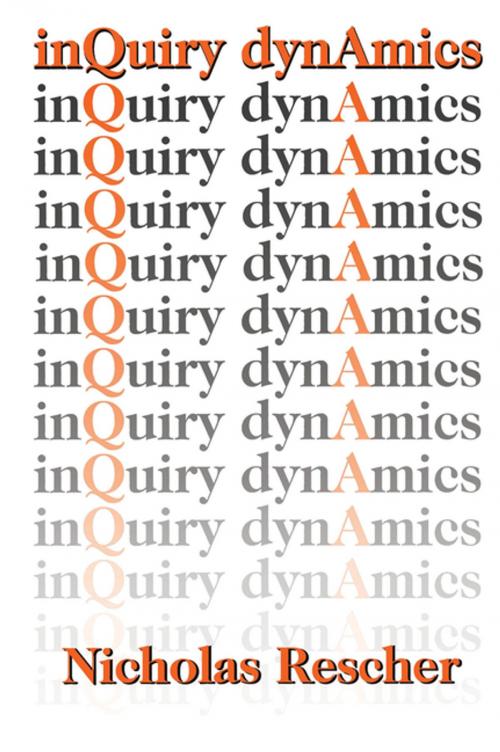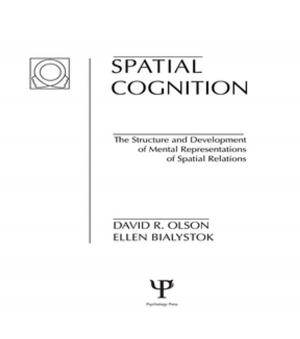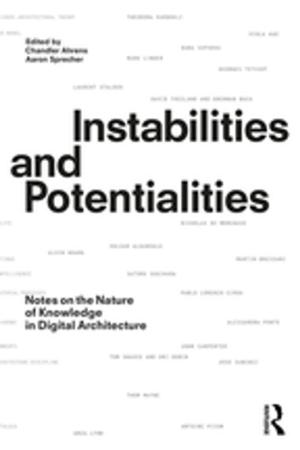| Author: | Nicholas Rescher | ISBN: | 9781351327022 |
| Publisher: | Taylor and Francis | Publication: | January 16, 2018 |
| Imprint: | Routledge | Language: | English |
| Author: | Nicholas Rescher |
| ISBN: | 9781351327022 |
| Publisher: | Taylor and Francis |
| Publication: | January 16, 2018 |
| Imprint: | Routledge |
| Language: | English |
Epistemology is more than the theory of knowledge. Its range of concern includes not only knowledge proper but also rational belief, probability, plausibility, evidentiation, and not least, erotetics, the business of raising and resolving questions. Aristotle indicated that human inquiry is grounded in wonder; when matters are so out of the ordinary we puzzle about the reason why and seek for an explanation. With increasing sophistication, the ordinary as well as the extraordinary excites the intellect, so that questions gain an increasing prominence within epistemology. Inquiry Dynamics focuses on the phenomena and theory of rational inquiry, focusing on its concern for questions and their management.
An introductory chapter lays the groundwork of the book's deliberations, followed by chapter 2, explaining the basic concepts involved in the abstract logic of questions and answers and sets out the generic fundamentals of the domain. Chapters 3 and 4 expound the theoretical principles that characterize the field of question epistemology in general, clarifying the fundamental themes and theses of the subject. Chapters 5 through 9 then explore the landscape of question epistemology within science. Rescher seeks to show that there are limits-restrictions of basic principle-to our ability to resolve scientific questions. The concluding chapter argues in particular that the grand goal of an ultimate theory, one resolving all explanatory questions, has to be approached with great caution.
Throughout Rescher emphasizes that a question-oriented approach to the process of inquiry serves to highlight the inherent limitations of the cognitive project. Rescher's question-oriented treatment of epistemology proceeds in the tradition of Kant and stands in decided contrast to the dominant knowledge-oriented approach originating with Descartes. He demonstrates that a concern for the issue of plausible question resolution is a necessary component of the epistemological enterprise. Inquiry Dynamics will be of interest to philosophers, scientists, and social scientists.
Epistemology is more than the theory of knowledge. Its range of concern includes not only knowledge proper but also rational belief, probability, plausibility, evidentiation, and not least, erotetics, the business of raising and resolving questions. Aristotle indicated that human inquiry is grounded in wonder; when matters are so out of the ordinary we puzzle about the reason why and seek for an explanation. With increasing sophistication, the ordinary as well as the extraordinary excites the intellect, so that questions gain an increasing prominence within epistemology. Inquiry Dynamics focuses on the phenomena and theory of rational inquiry, focusing on its concern for questions and their management.
An introductory chapter lays the groundwork of the book's deliberations, followed by chapter 2, explaining the basic concepts involved in the abstract logic of questions and answers and sets out the generic fundamentals of the domain. Chapters 3 and 4 expound the theoretical principles that characterize the field of question epistemology in general, clarifying the fundamental themes and theses of the subject. Chapters 5 through 9 then explore the landscape of question epistemology within science. Rescher seeks to show that there are limits-restrictions of basic principle-to our ability to resolve scientific questions. The concluding chapter argues in particular that the grand goal of an ultimate theory, one resolving all explanatory questions, has to be approached with great caution.
Throughout Rescher emphasizes that a question-oriented approach to the process of inquiry serves to highlight the inherent limitations of the cognitive project. Rescher's question-oriented treatment of epistemology proceeds in the tradition of Kant and stands in decided contrast to the dominant knowledge-oriented approach originating with Descartes. He demonstrates that a concern for the issue of plausible question resolution is a necessary component of the epistemological enterprise. Inquiry Dynamics will be of interest to philosophers, scientists, and social scientists.















